This message was emphasized by delegates, speakers and businesses at the 2025 Business Culture Forum with the theme “Responsible Business” organized by the Vietnam Federation of Commerce and Industry (VCCI) in coordination with the Center for Business Culture (VCCI) on the afternoon of April 15 in Hanoi.
At the event, VCCI Chairman Pham Tan Cong emphasized that in the journey of building and developing the country, the Vietnamese business community is growing in both quantity and quality. However, the building of a business culture identity has not yet received due attention. In the context of the country entering a new era of development, building business ethics and culture has become a strategic task, both urgent and long-term.
“Responsible business is an important content of business culture. This is the key to help businesses improve their competitiveness, build reputation not only for the business but also for the whole country; at the same time, minimize risks, especially legal risks in the process of international integration”, the Chairman of VCCI emphasized.
According to Mr. Cong, many Vietnamese enterprises have realized that in the long term, the profits and return on investment of enterprises must be considered in a broader context, including economic, social issues and the responsibility of each enterprise. They have paid more attention to the interests of society and environmental protection than the requirements prescribed by law, such as: solving labor and employment issues, environmental issues, fighting against bribery and corruption, and participating in and developing the community.
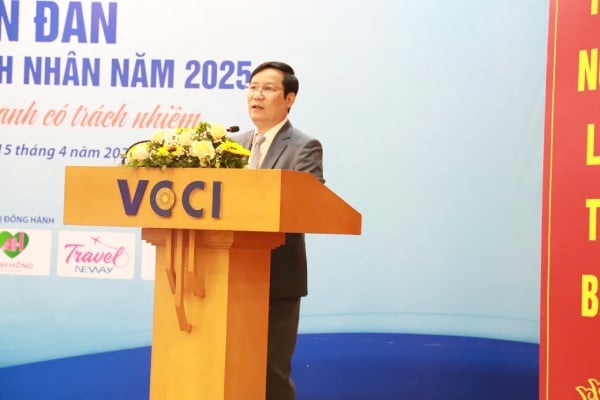
"Thus, responsible businesses not only contribute to economic results but also play an important role in building a sustainable living environment and good governance through the supply chain," the VCCI Chairman emphasized.
Ms. Vi Thanh Hoai - Deputy Director of the Department of Grassroots Culture (Ministry of Culture, Sports and Tourism) said that in the business field, cultural values are the root of sustainability. A business that wants to develop in the long term cannot only pursue profits but needs to build a solid cultural foundation from business philosophy, business mission, vision to the way of behaving with employees, partners and customers.
Corporate culture shapes identity, maintains reputation, and builds trust. That is what creates a brand, makes a difference in a competitive environment. It is not simply about getting rich, but getting rich responsibly, respecting the law, complying with business ethics, protecting the environment, and sharing with the community.
Sharing the practical experience of the enterprise, the representative of Quang Ngai Sugar Joint Stock Company (QNS) said that one of the factors contributing to the achievements of the enterprise in recent times is the motto of responsible business in relations with shareholders, employees, customers and partners as well as the social community. Thanks to that, the reputation of the QNS brand has continuously increased over time.
Playing a key role in the process of building the QNS brand and creating sustainable values for the company is the spirit of "Consensus - Dedication - Creativity" throughout the development journey of the enterprise.
Dr. Pham Hong Thanh - former Deputy Director of Viettel Academy, Vice President of Nam Dinh Business Association in Hanoi emphasized that business ethics will inevitably be a part of business culture. In the digital age, every action, no matter how small, can leave a trace, and quiet choices will no longer exist. Nowadays, business cannot be without responsibility, and without responsibility, there will be no brand, and employees may leave. Irresponsible business can get into trouble with the law.
"Responsibility here is no longer an option but a prerequisite, a foundation for creating longevity. The ethical limits that business people can or cannot overcome are beyond the realm of possibility," Mr. Thanh acknowledged.
Regarding corporate social responsibility, it revolves around three main issues: responsibility for products, responsibility for employees and responsibility for the country.
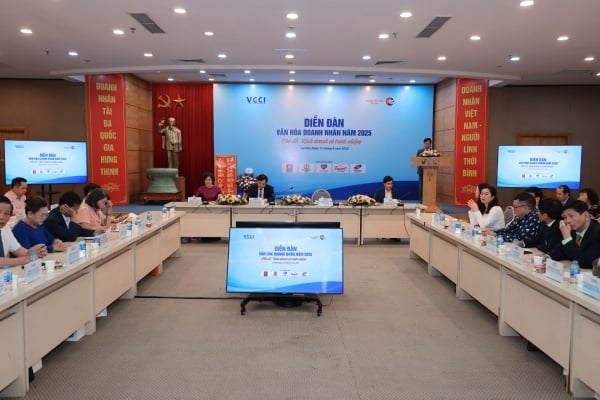
Emphasizing the issue of product responsibility, according to Mr. Thanh, this is a responsibility that directly affects consumers and is also the honor and survival of the business. For businesses, products are the lifeblood of the business.
But when doing business responsibly, ethics cannot be sacrificed to sustain that life. A product is not just something a business sells, but something that makes customers remember, trust and choose it for the next time. A product can be sold for 6 million VND, but if the business can produce and ensure a profit of 5 million VND, then choosing a selling price of 5 million VND or 6 million VND is not just a financial problem but a problem of the leader's conscience.
Believing that benefits are temporary but reputation, image and customer trust are permanent, Mr. Thanh told the story about the business philosophy of Viettel - where he worked for a long time.
"At the time Viettel was established in 2004, telecommunications rates were very high, up to about 2,000-3,000 VND/minute. In particular, when making inter-regional calls from Hanoi to Ho Chi Minh City, there were times when it was 16,000 VND/minute. At that time, the minimum wage for workers was only 180,000 VND.
At that time, Viettel offered very low-cost packages, only about 3-500 VND/minute, allowing consumers to choose more valuable products. With this approach, Viettel has now become a valuable global brand, in the top 500 largest enterprises in the world," Mr. Thanh said.
Meanwhile, recently there have been many cases involving counterfeit and poor quality goods, the most recent being the 500 billion VND fake milk business busted by the Ministry of Public Security.
"This incident is like a huge wake-up call for the business community, sellers, manufacturers, distributors, and celebrities. They cannot shirk their responsibilities, especially social responsibilities," the expert said.
From the perspective of the management agency, Mr. Phan Xuan Thuy - Deputy Head of the Central Propaganda and Mass Mobilization Department emphasized: "The business community must consider ethics as the core brand, comply with the law, promote innovation, and join hands to solve social problems".
He also suggested that VCCI and business associations continue to spread the six ethical codes of Vietnamese businessmen, connect businesses with national cultural values, and recommend that the State perfect institutions to create a transparent business environment and promote sustainable development.
Source: https://doanhnghiepvn.vn/doanh-nhan/kinh-doanh-co-trach-nhiem-bai-toan-luong-tam-cua-doanh-nghiep/20250415062228992


![[Photo] General Secretary To Lam receives French Ambassador to Vietnam Olivier Brochet](https://vstatic.vietnam.vn/vietnam/resource/IMAGE/2025/4/17/49224f0f12e84b66a73b17eb251f7278)
![[Photo] Nhan Dan Newspaper announces the project "Love Vietnam so much"](https://vstatic.vietnam.vn/vietnam/resource/IMAGE/2025/4/17/362f882012d3432783fc92fab1b3e980)
![[Photo] Closing of the 4th Summit of the Partnership for Green Growth and the Global Goals](https://vstatic.vietnam.vn/vietnam/resource/IMAGE/2025/4/17/c0a0df9852c84e58be0a8b939189c85a)
![[Photo] National Assembly Chairman Tran Thanh Man meets with outstanding workers in the oil and gas industry](https://vstatic.vietnam.vn/vietnam/resource/IMAGE/2025/4/17/1d0de4026b75434ab34279624db7ee4a)
![[Photo] Promoting friendship, solidarity and cooperation between the armies and people of the two countries](https://vstatic.vietnam.vn/vietnam/resource/IMAGE/2025/4/17/0c4d087864f14092aed77252590b6bae)


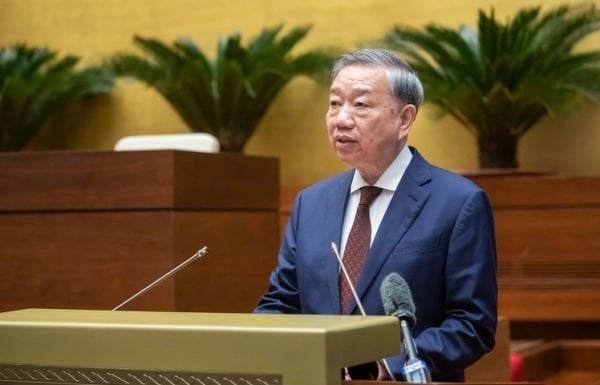

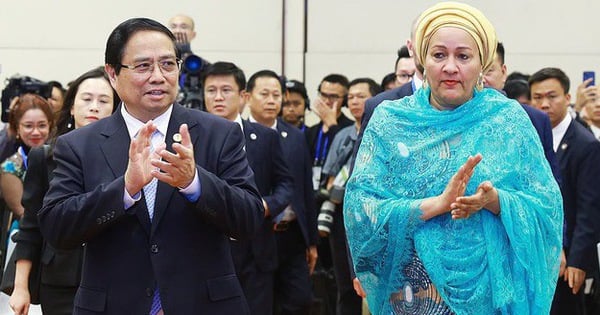
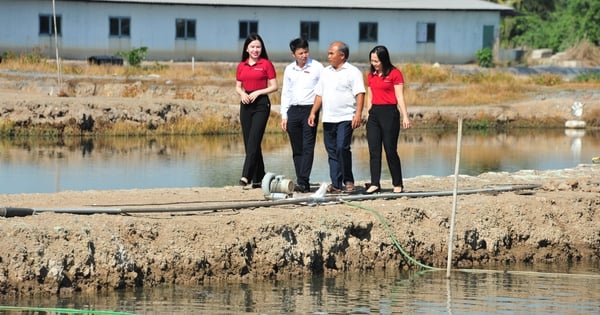
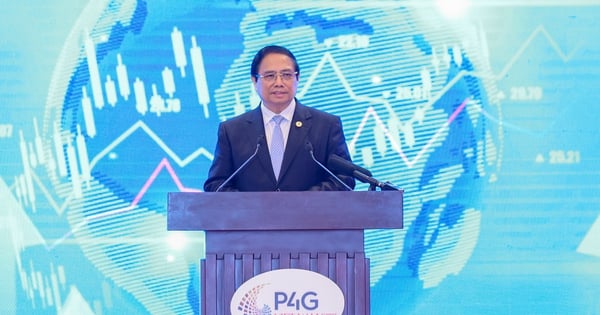







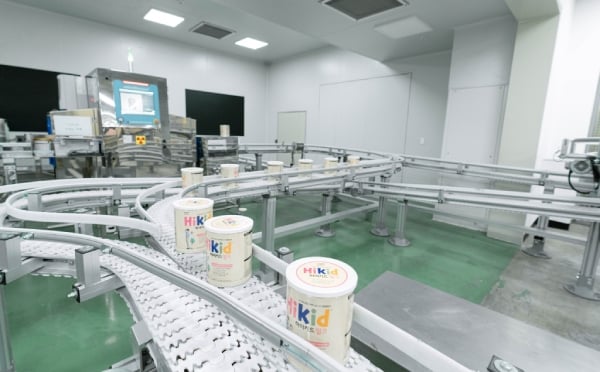
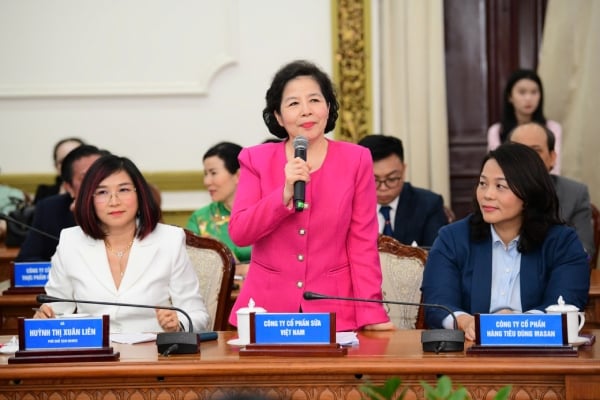

![[Photo] Welcoming ceremony for Chinese Defense Minister and delegation for friendship exchange](https://vstatic.vietnam.vn/vietnam/resource/IMAGE/2025/4/17/fadd533046594e5cacbb28de4c4d5655)




























![[Video] Viettel officially puts into operation the largest submarine optical cable line in Vietnam](https://vstatic.vietnam.vn/vietnam/resource/IMAGE/2025/4/17/f19008c6010c4a538cc422cb791ca0a1)






















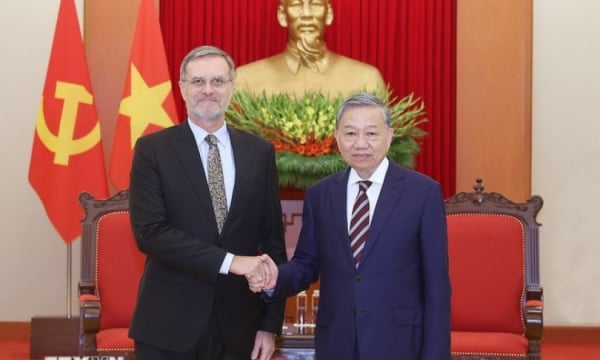


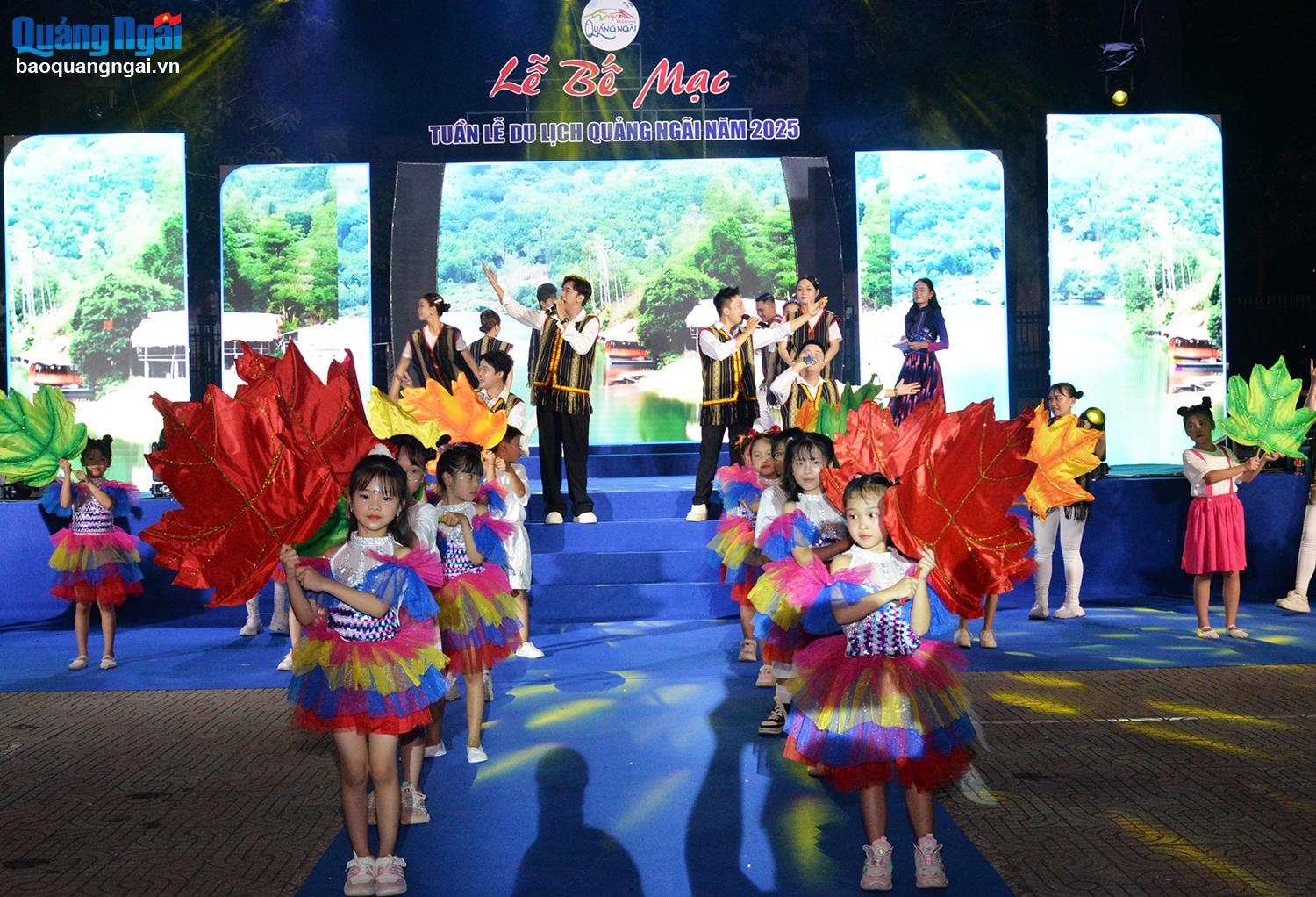














Comment (0)